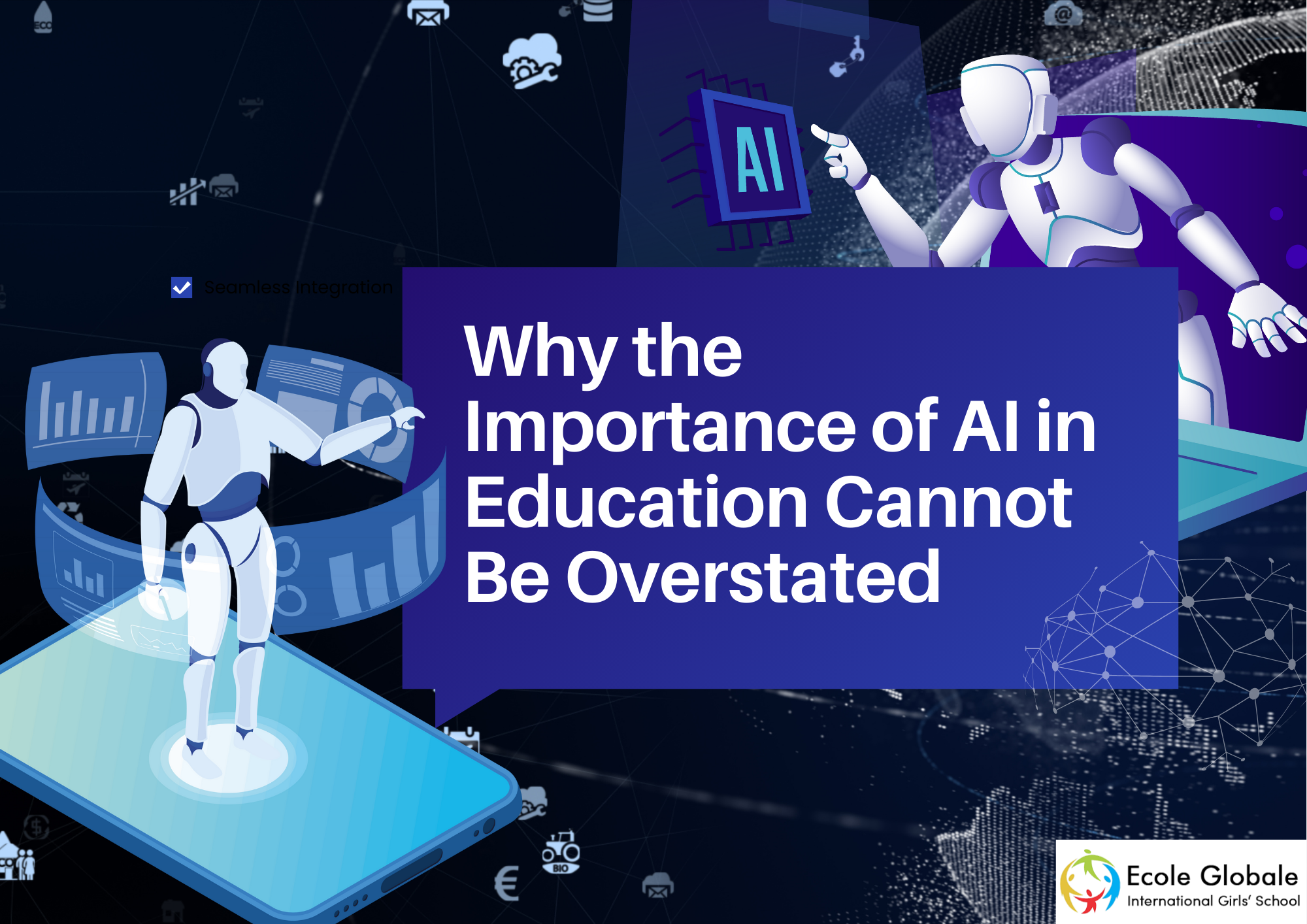As classrooms evolve and digital tools become central to the learning process, one technological innovation stands out in its transformative potential—Artificial Intelligence (AI).
The importance of AI in education today is not just a futuristic concept but a present-day necessity that’s reshaping how students learn, how teachers teach, and how institutions operate.
From personalized learning paths to intelligent tutoring systems, AI has stepped beyond the realm of theory and into practical use cases that benefit millions of learners worldwide.
For students, parents, and educators alike, understanding the importance of AI in education is key to embracing the future of learning.
What Does AI in Education Look Like?

Before diving into its benefits, it’s important to understand what AI looks like in the education sector.
Intelligent Tutoring Systems (ITS): These AI-powered systems adapt content delivery based on a student’s pace and understanding.
Automated Grading: AI can grade objective tests instantly, and even assess essays through advanced natural language processing.
Virtual Assistants: AI chatbots are increasingly used by educational institutions to answer student queries 24/7.
Predictive Analytics: AI helps schools identify students at risk and intervene early with targeted support.
The importance of AI in education stems from how it combines data, computing, and human intent to make learning more responsive and individualized.
Benefits of AI in Education

1. Personalized Learning at Scale
One of the strongest arguments highlighting the importance of AI in education is its ability to offer personalized learning experiences to each student.
AI algorithms analyze individual student performance and learning styles.
Based on data, they customize content, suggest practice questions, or even recommend video lessons.
This ensures that students receive support suited to their unique strengths and weaknesses.
2. Real-Time Feedback and Assessment
Traditional assessments can take days or weeks to evaluate, but AI provides instant feedback.
Students immediately understand where they went wrong and can take corrective action.
Teachers get performance analytics to adjust their lesson plans accordingly.
The importance of AI in education is reflected in its role as a continuous performance evaluator.
3. Support for Teachers
AI is not here to replace teachers—it’s here to support them.
Automated grading saves time on routine tasks.
Virtual teaching assistants can handle frequently asked questions.
AI helps identify students who may need extra attention, allowing teachers to focus their efforts more effectively.
4. Making Education Inclusive
The importance of AI in education also lies in its ability to bridge learning gaps.
AI-powered tools can offer multilingual translations, voice recognition for differently-abled students, and adaptive reading materials.
Students with disabilities benefit greatly from assistive technologies that respond to individual needs.
Challenges and Ethical Considerations

While the importance of AI in education is undeniable, it is also essential to consider the challenges:
Data Privacy: Handling student information responsibly is crucial.
Equity of Access: Not all students have access to the necessary devices or internet connectivity.
Teacher Training: Educators need proper training to use AI tools effectively.
Ethical implementation is key to ensuring that importance of artificial intelligence in education becomes a tool for empowerment rather than exclusion.
Future of AI in the Education System

As AI continues to evolve, the importance of AI in education will only increase. In the near future, we can expect:
More immersive experiences through AI combined with AR/VR.
Hyper-personalized curricula that adapt daily based on student moods and energy levels.
Smarter institutional planning with AI predicting enrollment patterns, dropout risks, and funding needs.
Schools that recognize and invest in the importance of AI in education today will be the ones leading the way tomorrow.
Practical Tips for Educators and Parents

For Educators:
Start small: Use AI tools like Grammarly, ChatGPT, or Kahoot to enhance learning.
Attend workshops to stay updated with AI trends in teaching.
Collaborate with tech teams to explore classroom-friendly AI software.
For Parents:
Encourage responsible use of AI-powered learning apps like Byju’s, Khan Academy, or Duolingo.
Monitor your child’s progress using AI-generated performance reports.
Educate children about data safety and ethical tech use.
Conclusion
The importance of AI in education cannot be overstated. It is not merely a technological upgrade—it is a paradigm shift that enhances learning quality, accessibility, and engagement for all students.
By embracing AI thoughtfully and ethically, we empower our children with tools that prepare them not only for exams but also for a dynamic future.
FREQUENTLY ASKED QUESTIONS
Q1. What is the importance of AI in education?
Ans: AI improves learning by personalizing content, automating tasks, and offering instant feedback, making education more efficient and inclusive.
Q2. How does AI personalize learning for students?
Ans: AI analyzes a student’s learning pace and performance to suggest customized study material, quizzes, and support based on individual needs.
Q3. Can AI replace teachers in the classroom?
Ans: No. AI is designed to support, not replace teachers. It handles repetitive tasks and provides insights so educators can focus on meaningful teaching.
Q4. Is AI in education safe for student data?
Ans: If implemented with proper safeguards, AI tools can be secure. Institutions must follow data privacy laws and ethical guidelines to protect students.
Q5. What are examples of AI tools used in education?
Ans: Common tools include intelligent tutoring systems, automatic grading software, AI chatbots for queries, and adaptive learning platforms like Khan Academy.









